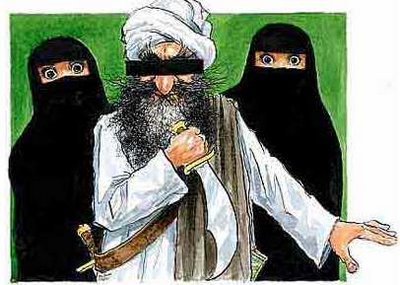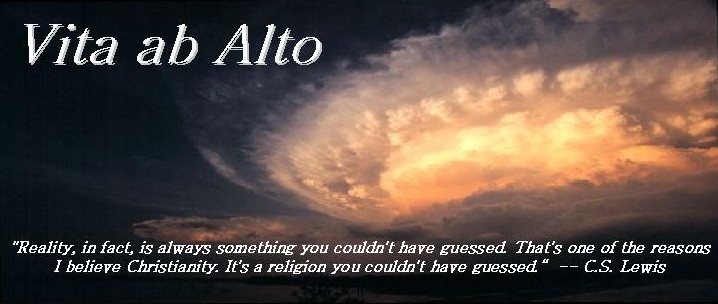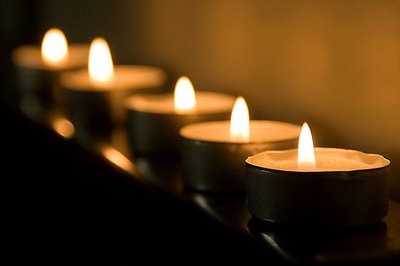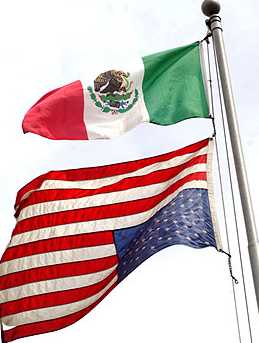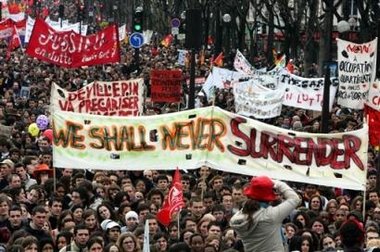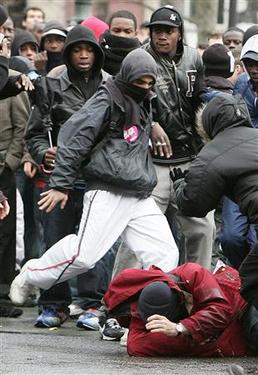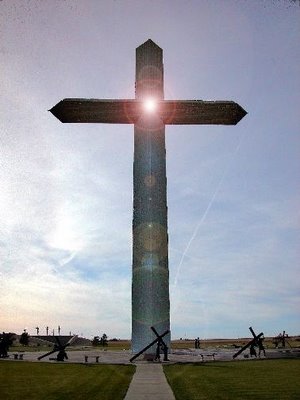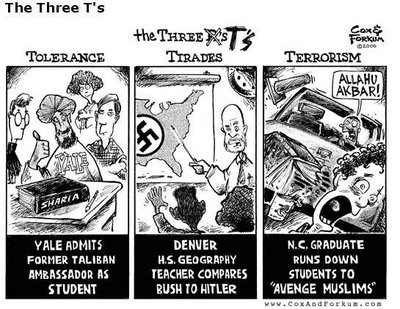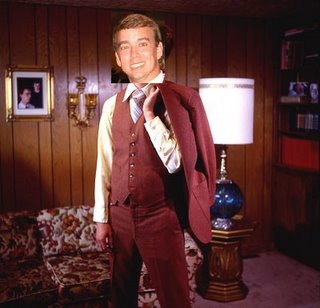I haven't posted a Christian Carnival for ages -- not since LXXXsomething -- simply because I haven't had time to read them myself and I don't think it's fair to endorse a product I haven't used. I resolve now to start posting them and, eventually, posting to them again.
This week's carnival can be found at
Adam's Blog and he has a number of excellent entries.
One that caught my eye, from
Crossroads, has to do with some churches being too controlling concerning the behavior of their congregations. There is, after all, a very fine line between
accountability, say to a small group or other close association of believers, and
control -- dictating the behavior of group members. Sometimes the two bleed over, or at least are perceived to by members who may be lapsing and rebelling against conviction.
I guess you have to know and be in it to see the true difference, but I think Diane at Crossroads has some insights:
There is only one reason for any control - faulty organizational structure. There are two types of relationships, both of which involve that dirty word that Americans love to hate - submission! Submission, very simply put, is one person or group being led by another person or group. The leaders could be put there by a small group, by a vote, or by coercion/power
In controlling churches, usually the leader/head pastor/main enchilada is the instigator. I believe this has a lot to do with the accountability of the church's leadership to a hierarchy. In more democratic churches, there is little or no accountability beyond the local congregation and so it is easier for the strong-willed and demagogues to create cults of personality and then demand compliance with a set of rules (to act essentially as dictators). This is the same phenomenon our forefathers warned us about concerning direct democracy: once the mob rules, the one who sways the mob wields the real power.
I believe there is an inverse correlation between the degree of hierarchy in a church organization and the degree of "control" over the behavior of the congregration. Those that are more hierarchically organized tend less toward this phenomenon than those that are more democratic. Diane agrees:
How do these pastors get into their positions? Their organizational structure isn't Biblical. For instance, nowhere in the NT does it say for pastors to start churches with no [bishopric] oversight. I have found generally where there is a lot of control, it's usually independent churches; or churches within a very loose network of churches, such as Word of Faith churches which have little if any oversight. The safest churches usually are denominational ones with good oversight and supervision although at times some could fall through the cracks.
There is a fine balance to be struck here, too, however. Some church hierarchies are downright monarchical and thus more concerned about protecting their intitutional interests than in satisfying the needs of their congregations. The more monarchical the church, the greater the potential for clerical abuse and coverup as well, as the judgment the Catholic Church is currently enduring proves.
The Methodists come closer to getting it right, but I personally believe the Bishop and District Superintendant have too much power. It is possible to build megachurches around a single pastor's ministry, as witness John Ed Matheson's near-Baptist domination of Frazer UMC (this remark will get me in trouble, I know) for the past umpteen years. Don't get me wrong: the man has a unique calling and has been and continues to do great things with Frazer, but this is the exception that tests the rule. The size of his congregation and his popularity give him political disproportionate clout within our Conference. Otherwise, placement is at the whim of the Bishop and DS and the attitude toward congregations, especially smaller ones -- the ones that need talented pastors the most to grow or revive -- seems to be, "you'll take what you get and like it." I say this as a member of my congregation's Staff-Parish Relations Committee (although I may not be for much longer after this is read!), the body that has the most cognizance in the UMC for calling and "uncalling" pastors -- to the extent that any body in the congregation does. So the UMC may not be a monarchy; it's more like a feudal baronetcy.
The best organization I've seen is within the Presbyterian Church USA, wherein a real form of republicanism prevails. There is a regional and national overstructure (we will leave aside for the moment today's ideological disconnect between those bodies and most local congregations), which has broad oversight functions and ensures doctrinal compliance. It can also discipline or dismiss pastors and provides congregations lists of pastors available for various callings. The congregations themselves, however, make the calls to interview and approve a particular pastor. The pastor and the congregation mutually make the decision (with a little assistance from the Almighty, of course), which seems to me the fairest way to ensure a good "fit" bewteen pastor and parish. The board of elders makes the call and does the interviewing. The entire active congregation votes on the final decision to accept the pastorate.
In short, you need a structure of accountability to prevent dictatorships (or mob rule), but those structures need to be representative and reflect the needs and concerns of the congregation. No one does it perfectly (but, of course, Presbyterians were pre-ordained to come closest); I just wish my own denomination was a bit less feudal in how it does its business.
 Monk
Monk